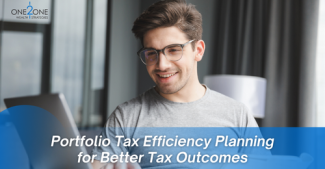
Portfolio Tax Efficiency Planning for Better Tax Outcomes
In today’s volatile stock market environment, tax efficiency management is used to harvest losses and adjust assets in portfolios. For example, when an investor is reaping long-term gains, paring losses can reduce their tax liability. After all, volatility and tax management co-exist together.
Why plan for tax efficiency?
Planning for tax efficiency in your portfolio during times of volatility is essential and can be accomplished by working with your financial and tax professionals. Tax efficiency is a portfolio management ‘best practice’ that can save investors’ money by understanding their overall portfolio tax situation. Tax efficiency is essential to managing a portfolio's unrealized and realized gains down to the individual lots. What do financial professionals consider when examining a portfolio’s tax-efficiency?
- A household performance overview.
- A house holding tax feature.
- The tax consequences of trading and rebalancing.
- Tax-efficient portfolio creation.
- Taxable YTD reporting.
- Realized and unrealized gains and losses.
- Dividends and distributions YTD.
Having the insight to make decisions at a moment’s notice to produce income while accounting for taxes is critical during any market condition. Discussing tax-savings strategies with your financial professional may be valuable throughout your portfolio’s duration as its value increases over time.
Distribution and tax efficiency in retirement
Your financial professional's tax efficiency tools may provide insight into distribution demands if you're close to retirement or retired. Portfolio creation that is both tax-efficient and goal-oriented can be accomplished by working with your financial and tax professionals throughout retirement.
If you have questions about tax efficiency planning in your portfolio, contact our office to schedule a meeting at your convenience.
Important Disclosures:
The opinions voiced in this material are for general information only and are not intended to provide specific advice or recommendations for any individual.
This information is not intended to be a substitute for specific individualized tax advice. We suggest that you discuss your specific tax issues with a qualified tax advisor.
This article was prepared by Fresh Finance.
LPL Tracking #1-05252514

